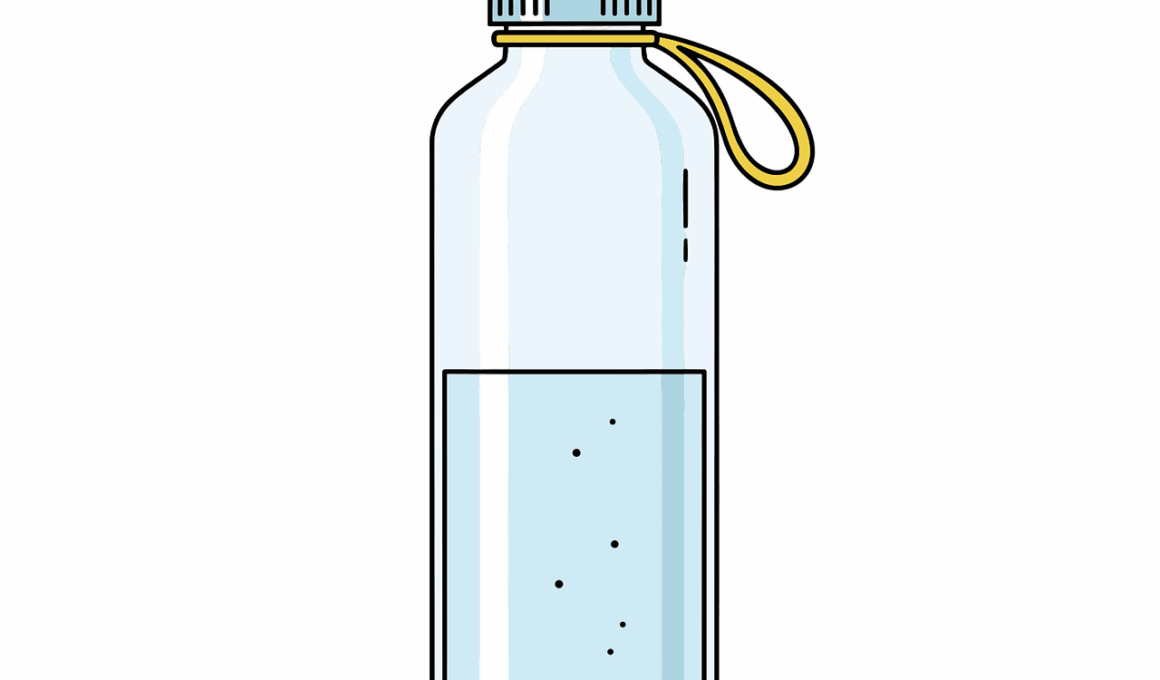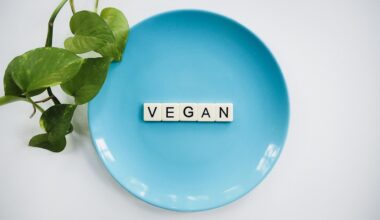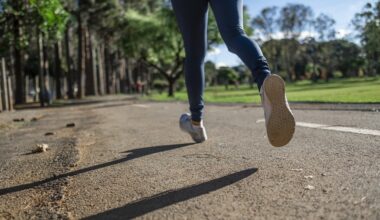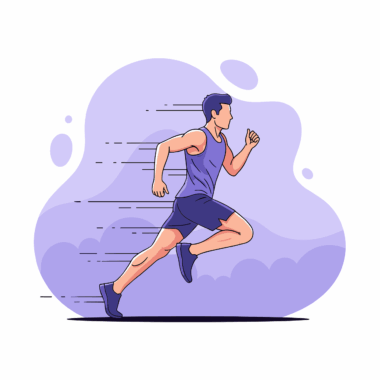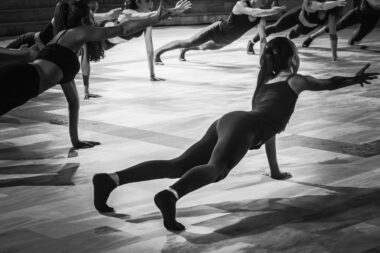Hydration and Nutrition Tips for Home Exercising Seniors
Staying hydrated while exercising at home is vital for seniors, particularly during warmer months. Dehydration can lead to severe health issues such as dizziness and fatigue, making hydration an essential part of a home exercise routine. Seniors should aim to drink water before, during, and after exercising, as this helps maintain proper bodily functions. Additionally, incorporating fruits and vegetables that have high water content into your daily meals can also contribute significantly to hydration. Foods such as cucumbers, watermelon, and oranges not only provide hydration but also vital vitamins and minerals. A good formula to remember is to consume at least eight glasses of water daily. However, needs may vary depending on activity levels. It’s also important to recognize signs of dehydration, which can include a dry mouth, headaches, and decreased urine output. Keeping a water bottle visible encourages more frequent sipping. By practicing these hydration techniques, seniors will enhance their overall performance and recovery during home exercises. Always consult a healthcare provider before making major dietary changes to ensure they meet individual health requirements and fitness goals.
In addition to hydration, nutrition plays a vital role in enhancing the exercise experience for seniors. Balanced meals filled with nutrients are crucial in supporting energy levels and muscle recovery after workouts. Seniors should focus on incorporating a variety of food groups. Essential nutrients include proteins, carbohydrates, fats, vitamins, and minerals. An excellent source of protein may be lean meats, legumes, and eggs. Carbohydrates, found in whole grains, provide the energy needed for exercise. Healthy fats sourced from avocados, nuts, and olive oil are also integral to nutrition. It’s beneficial to consume meals or snacks containing protein and carbohydrates shortly after exercising. This combination can significantly aid muscle recovery. Planning meals around exercise times can also ensure that seniors receive the right nutrients to power through their workouts. Engaging in meal prep can allow seniors to have healthy options readily available, preventing unhealthy eating highs. Many seniors might find it challenging to meet nutritional needs, so exploring supplements as a compliment could be of value, though they should seek professional advice before starting any supplementation. Nutrition is indeed the cornerstone of sustaining long-term fitness.
Understanding Fluid Needs
Every senior may have different fluid needs, contingent upon factors such as weight, climate, and exercise intensity. Understanding how these factors influence hydration can aid in creating a personalized hydration plan. A simple method to estimate individual hydration needs is multiplying body weight in pounds by 0.5; this result illustrates the number of ounces of water needed per day. However, during intense workouts, this figure may rise. For those engaging in light scoring, smaller amounts will suffice. Seniors should listen to their bodies and drink when thirsty or during exercise to avoid dehydration. Moreover, incorporating beverages that provide electrolytes, especially if workouts are more intense, is beneficial. Electrolytes enhance hydration and help to restore the balance of minerals in the body after physical exertion. Coconut water and sports drinks tailored for seniors can be great options. Additionally, awareness of medications that can cause dehydration is essential. It’s advisable to keep a hydration log for some time to help keep track of water intake and how it affects personal exercise performance, which enables tweaking any hydration strategy accordingly.
Maintaining a variety of flavors in choosing hydration may also enhance enjoyment and encourage better intake for seniors. Plain water can feel monotonous, so enticing choices can improve fluid consumption and enjoyment. Herbal teas, infused waters with fruits or herbs, or sparkling water adds a tasty twist while reaping hydration benefits. Keeping hydration visually appealing is crucial. Seniors can prepare infusions or flavored teas and place them conveniently around their living space. Ice cubes filled with fruit for a refreshing addition can brighten a glass of plain water. Avoiding beverages laden with sugar, artificial sweeteners, and excessive caffeine is crucial, as these can negatively affect hydration status. Ensuring access to proper hydration options during workouts can boost motivation and contentment to keep active more regularly. Transitioning pandemic trends to outdoor activities, even just sunny porch workouts, should hold the practice of keeping hydrated. By cultivating positive hydration habits and providing variety, seniors may find not only increasing performance in exercise routines but also greater overall health and vitality. Enjoyable hydration can transform exercise routines and boost well-being remarkably.
Meal Timing for Optimal Recovery
The timing of meals in correlation with exercising can have profound impacts on energy and recovery for seniors aspiring for home fitness. It is advisable to allow for sufficient time after eating before commencing any significant exercise to prevent discomfort. An optimal timeframe is around two to three hours post-meal before engaging in physical activity. Conversely, consuming a light snack soon before exercising can offer the quick energy desired for lighter workouts. Good options include yogurt, a banana, or a handful of nuts. Once the workout has concluded, replenishing with a combination of proteins and carbohydrates is essential. For instance, smoothies with banana and protein powder can effectively support muscle recovery and restore energy. Access to quick and healthy post-workout meals encourages easy maintenance of these practices. Apart from timing, portion size is vital for seniors; mindfulness in portion control while ensuring sufficient energy can optimize performance and prevent overeating. Preparing ahead can help seniors stick with these strategies, ensuring they remain energized and motivated. Therefore, thoughtful meal planning can enhance exercise routines and ensure favorable outcomes in fitness goals.
Incorporating fiber-rich foods into diets can also significantly improve overall nutritional health for seniors engaged in home exercises. Foods consisting of whole grains, fruits, and vegetables not only provide fiber but also enhance digestive health, which is essential for receiving all necessary nutrients from the diet. To ensure a balanced diet, seniors should consider variations in color and type when preparing meals. Such variety aids dynamic nutrient absorption and can prove satisfying. Exploring new recipes that emphasize whole foods can make healthy eating feel excited, rather than restrictive. Additionally, fiber helps to control sugar levels and promotes heart health, which are both crucial for those engaging in physical exercise. Preparing main meals that encapsulate protein and fiber creates a foundation that supports sustained energy levels throughout workouts. Regular meal planning including breakfast, lunch, dinner, and snacks can foster consistency and health. It might be beneficial to partner with a family member or friend to create engaging meal experiences, promoting social connections. Overall, by enriching their diets with fibers and other essential nutrients, seniors can enhance both their exercise and overall health tremendously.
Conclusion: Embracing Health Through Nutrition
Finally, the columns of hydration and nutrition dramatically support seniors who are committed to their home exercise routines and enduring overall health. Parents, guardians, and caregivers should guide seniors in these areas, emphasizing the importance of remaining hydrated during any physical activity. Meal and snack planning around workouts significantly sustain energy and promote recovery. By creating tailored hydration and nutrition strategies, seniors stand to boost their performance and health through fitness. Over time, developing good habits that recognize the relationship between proper nutrition and exercise will help seniors reach their fitness goals effectively. Continuous monitoring of food and drink intake may yield rewarding adjustments that enhance performance. Additionally, engaging in discussions about nutrition with health professionals ensures a thorough understanding of individual dietary needs. Various methods exist to incorporate hydration and nutrition education into regular eating habits; ultimately, it culminates in sustained excitement for exercise programs. When seniors feel good about their nutrition and hydration, they tend to exercise more frequently and effectively. Implementing these vital practices enhances not only physical fitness but also overall well-being, creating a gratifying journey towards optimal health throughout life.
